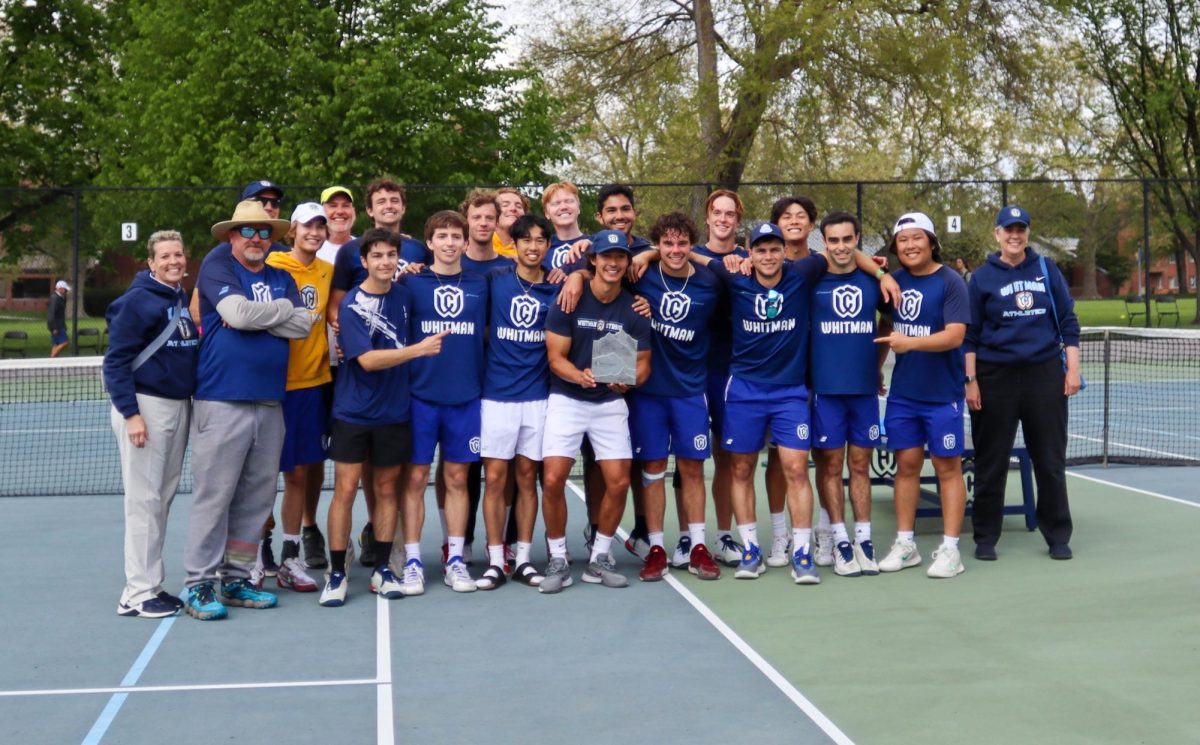Sophomore Helen Jenne lives at the Community Service Interest House (commonly known as the Co-op) and swims freestyle for the varsity swim team.
As she’ll gladly tell you, she also does a lot of dishes.
“With swim practice, it’s often hard to make house dinner, and so I haven’t cooked yet this semester,” she said. “I have guilt dishes.”
According to Resident Director Patrick Herman, Helen is one of just two varsity athletes living in the Interest House Community this semester, a number that perhaps reflects the complex time management that goes into being part of IHC activities as well as competing at the varsity level. Depending on the week, Jenne can spend between 15 and 18 hours in the pool as part of her training and competition regimen.
With such a packed schedule, grace and flexibility have been important factors in her relationships with the housemates and Resident Assistant. According to Co-op RA Richael Best, though, the two varsity athletes who live at the Co-op are valued members of the IHC and the house itself.
“I try to make sure house events work in whole or in part for the athlete, or, if that doesn’t work, to be understanding of things they have to miss … I love my athletes,” said Best.
Best also emphasized that varsity athletes’ busyness can in fact be matched by other house members’ participation in a variety of extracurricular activities.
“Other members of the house also miss events because of various other commitments. Sometimes I see more of the athletes than my other housemates because everyone is so busy,” she said.
Nonetheless, the time commitments of athletics do make themselves felt in IHC life. Jenne has been unable to attend any of the Co-op’s “Service Saturday” events due to swimming this semester. Co-op housemate Shannon McCarty, a varsity cross country runner, has also been forced to miss Service Saturday at least once.
Despite these timing challenges, Jenne says that her housemates have been very accommodating.
“[Members of the Co-op] are just really supportive and helpful,” she said. “Everyone is really busy, and I think that has contributed to mutual understanding.”
Unfortunately, living in an IHC house isn’t fully manageable for all varsity athletes. Senior Kelsie Butts lived in the Co-op the fall of her sophomore year when she also juggled commitments to the varsity volleyball team and a job at the Center for Community Service (now the Community Service Office).
“One of the reasons why I moved out of the Co-op was because I felt like I wasn’t living up to my obligations to my house,” she said. “I kind of felt like I wasn’t getting to know my housemates well and wasn’t creating that relationship.”
Herman says he is aware of varsity athletes’ challenging situation, and tries specifically to prepare his RA staff to work with athletes. He also encourages the IHC community to cheer on varsity athletes.
“For houses to be able to go support athletes is also a really special bonding experience,” Herman said.
Best, too, sees varsity athletes as contributing something unique to the community.
“I think athletes bring a nice perspective to the IHC. Sometimes the houses get so focused on the theme that it’s nice to discuss someone’s other passion. Also I don’t think the IHC in general goes to many sporting events, and having athletes as housemates definitely increases awareness and attendance,” she said.
For varsity team members looking to pursue extra-athletic interests and find a supportive community, the IHC can offer a great option. According to Butts, though, the decision to live in the IHC should be made with careful consideration.
“I would really recommend that they think about whether this is a commitment that they are willing to take on. It is a great experience and if they are able to they should definitely do it. The most important is to have a conversation with the house and the RA and explain what it means to be an athlete in terms of the time commitment,” she said.




